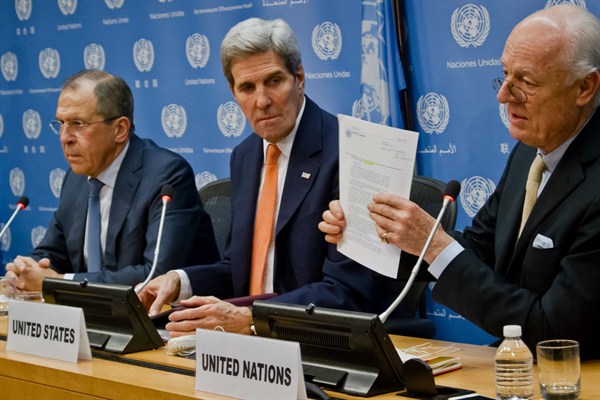It is difficult to see how the United Nations can get through 2016 without taking the blame for one or more major catastrophes. Its latest efforts to make peace in Syria have gone off the rails. The Security Council is fretting about the risks of mass violence in Burundi. U.N. peacekeeping operations have had a shaky start to the year. Terrorists have kept up attacks on peacekeepers in Mali. Last week, violence in a U.N. camp in South Sudan spiraled out of control, claiming at least 18 lives. It may just be a matter of time before a similar incident escalates further, leaving scores of U.N. troops dead or resulting in hundreds or thousands of civilian fatalities.
So there will more likely than not be headlines about “U.N. failures” this year. But the exact nature and repercussions of the organization’s missteps will matter, especially now as it prepares to select a new secretary-general this fall.
In an unprecedented step, the General Assembly will hold a series of “informal dialogues” with prospective candidates in the second quarter of the year. It is not clear that this will affect who will actually win the job: It is the permanent Security Council members that ultimately, if unofficially, get the final say.

